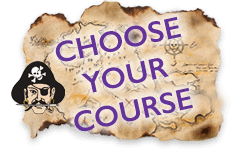
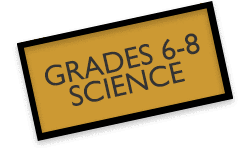

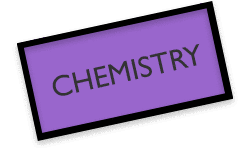
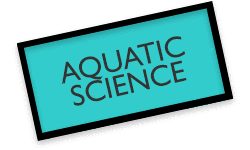
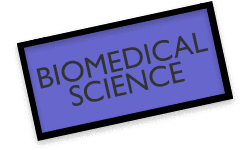
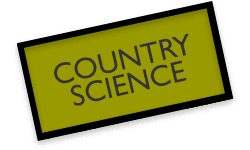
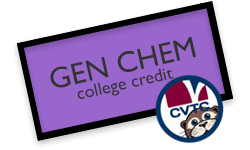
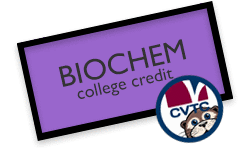


2024-2025 Biology Syllabus [close]
FREQUENTLY ASKED QUESTIONS
- What will I learn in Biology?
- What course is next after I've successfully completed Biology?
- What do I need for class?
- What will this course be like?
- Where do I prepare and keep my coursework?
- What if I am late handing it in?
- What is so great about the way we take notes?
- What do Cornell-style notes look like?
- What if I get stuck when I am trying to learn?
- What if I have a question outside of our scheduled class period?
- What is the grading scale for this course?
- How will I be graded?
- Can I resubmit coursework?
- What expectations do you have for me?
- What are my school-wide expectations?
- If I make the poor choice of being disrespectful, what are my consequences?
- What can I expect from you, Mrs. Steinbach?
Biology is a rigorous course designed to cover the basic concepts of general biology leading to the understanding of the change, homeostasis, organization, continuity, development, and ecology in living systems. This will be accomplished using a active, guided inquiry approach.
Introductory principles covered in this course will include biodiversity, natural selection, adaptation, homeostasis, organism structure and function, cycling of matter and energy, gene action, development, and ecology.
WHAT COURSE DO I GET TO TAKE NOW TO MEET MY SCIENCE REQUIREMENTS FOR GRADUATION? After completing Biology, you must choose to take two more years of science. In other words, you need a total of three years of science to graduate, one of which must be Biology. So, what you take next is up to you. Yup, it's your choice! To see what options are available to you, review our Gilman High School Science Requirements and Offerings or Science Credit Course Options.
[top]
To be successful in this class you will need to have the following items with you daily.
- Your school issued iPad.
- A composition-type notebook (one per semester). This notebook will serve as your scientific log. It is a place to record all of your studies, meaning laboratory results and analyses, informational notes, reflections, etc.
- A number 2 pencil with an eraser.
The following items will be provided by me and available in our classroom.
- A scientific calculator (e.g., TI-30Xa).
NOTE: A partial classroom set of calculators will be available for use.- A set of markers and/or colored pencils.
- A scissors.
- Elmer's glue, a glue stick, tape, or double-sided tape for interactive scientific notebooking.
- Highlighters.

[top]
WHAT WILL THIS COURSE BE LIKE?
In educational terms, biology lessons will be conducted using a modified version of the 5E learning-cycle model (e.g., learning sequence: engage, explore, explain, elaborate, and evaluate). This approach naturally infuses learning strategies for scientific thinking and the understanding and abilities of inquiry with real-life, meaningful studies that will allow you to demonstrate mastery of the biology concepts and practices.
MORE SPECIFICALLY… Units (e.g., change, homeostasis, energy/matter/organization, continuity, development, and ecology) are broken down into 5E lessons. To follow is a typical set of learning opportunities we will partake in within a unit.
- We often kick off lessons with a brief warm-up activity. This is our engage piece in the 5E model. Conduct these to the best of your ability without worry of judgment.
- We then conduct an investigate(s). This is a scientific activity where we work to solve problems, analyze data, conduct a computer simulation, perform a laboratory experiment, build models, watch a brief demonstration, or complete a card-sorting activity. This will give you an opportunity to think and build your own understanding and to support your ideas with evidence. Often these activities will be conducted in small groups or pairs. This experience is our explore piece in the 5E model.
- Next we will have discussions, readings, and/or notetaking. During this portion of the lesson, we will work together to further solidify your biology understandings. Doing so provides us with the explain and elaborate portion of the 5E model.
- To close the lesson, we will have evaluate activities that will allow us to complete the 5E learning-cycle.
Beyond these biology lessons, we will also infuse project-based studies, explicit ACT studies, and biology literature activities.
[top]
WHERE DO I PREPARE AND KEEP MY COURSEWORK?
Do your very best to complete all your studies in your notebook, preferably in pencil when problem-solving, unless otherwise instructed. Then, you will be asked to (1) turn in, (2) report, and/or (3) reflect upon your studies recorded in your notebook.
WHAT IF I AM LATE HANDING IT IN? Coursework must be turned in when requested. Doing otherwise is detrimental to your academic progress. To help, in most cases, you will be provided with a floating deadline. For example, your lab scientific explanation will be due on Monday, Tuesday, or Wednesday of next week. An extension may be given for an emergency/special situation. Our late work policy is as follows:
- Mid-checks submitted late, while still in the unit, will be allowed a maximum score of 89%. After the completion of the unit, they will be allowed a maximum score of 79%.
- End-checks will be accepted for full credit.
[top]
WHAT IS SO GREAT ABOUT THE WAY WE TAKE NOTES?
We will blend Interactive Notebooking and the Cornell Note-taking System in order to maximize our learning efforts. Your notebook will therefore not only serve as a log of your scientific studies, but also as an awesome study tool come test time. The research on the effectiveness of these two techniques is plentiful and solid.
WHAT DO CORNELL NOTES LOOK LIKE? Below is a quick overview of the system.
[top]
WHAT IF I GET STUCK WHEN I AM TRYING TO LEARN?
If you should have moments of struggle in this course,
- start by being resourceful and try to leap over your own hurdle. If you can overcome your challenge on your own, research shows that you are more likely to retain your newfound knowledge. Great resources to utilize include talking with a classmate, reviewing your notebook, completing an Internet search, etc.
- However, don’t spend too much time struggling. Please take some time to visit with or email me. I will be happy to help you to get to the root of your concerns and establish a plan of action that provides additional scaffolding (e.g., individualized instruction, graphic organizers, targeted problem-solving opportunities, etc.).
WHAT IF I HAVE A QUESTION OUTSIDE OF OUR SCHEDULED CLASS PERIOD?
To follow are a few options for you.
- Schedule a meeting before school, during flex period, or after school.
- Send a message to me via email.
FYI, please know that I will be monitoring your growth through formative assessment opportunities and will initiate a meeting and/or plan of action if necessary. Your academic success is very important to me.
[top]
WHAT IS THE GRADING SCALE FOR THIS COURSE?
Grades entered into the gradebook will be based on proficiency.
A
means you have advanced understanding of the science content/skill.B
means you are proficient in your understanding of the science content/skill.C
means you are still developing your understanding of the science content/skill.D
means you are beginning to have understanding of the science content/skill.F
means there is insufficient evidence at this time (i.e., missing assignments to demonstrate understanding).
92-90.... A-
86-83..... B
82-80..... B-
76-73..... C
72-70..... C-
66-63..... D
62-60..... D-[top]
WHAT ASSESSMENTS WILL YOU ENCOUNTER? Your grade will be determined by making a number of checks for scientific understanding and practices. Through these assessments, your mastery or proficiency level will be determined. Your proficiency level will then be converted to a percentage equivalent/point value for Infinite Campus calculation purposes.
- PRE-CHECK for Understanding/Practices
Pre-assessments are assessments that occur before the learning in order to establish a baseline for growth or before a major assessment.
- MID-CHECK for Understanding/Practices = FORMATIVE
Mid or formative assessments are assessments that occur while you are still learning. An analogy would be when the cook tastes the soup he/she is making in the kitchen before serving it.
Because these checks will be taking place during the unit learning process, they will weighted less and you may choose to resubmit them to show additional understandings. Examples of these types of assessments include:
- Investigate Data and Analysis Logs
- Check-Ins
- Project Checkpoints
- END-CHECK for Understanding/Practices = SUMMATIVE
End or summative assessments are those that occur at the end of the learning period. An analogy would be when the customer tastes the soup made by the cook.
Because these checks will be taking place at the close of the unit learning process, they will weighted more and you may not choose to resubmit them. Examples of these types of assessments include:
- Scientific Explanations (i.e., Claim-Evidence-Reasoning Statements)
- Tests
- Projects
- Comprehensive Semester END-CHECK = SUMMATIVE
At the end of each semester, you will take a comprehensive final. You will be allowed to use your scientific notebook during this assessment.
- Portrait of a Gilman Graduate
Gilman graduates gain more than academic understandings. They also gain durable skills that will allow them to thrive in their future life. Examples of such skills that we will focus on include:
- Autonomy
- Belongingness
- Goal Orientation
- Efficacy
- Individual Hope
- Engagement
HOW WILL MY QUARTER AND SEMESTER GRADE BE CALCULATED? Now that you understand the types of assessments you will encounter, let's look at how your grade will be calculated.
Your quarter grade will be determined through a weighted system.
- 0% PRE-CHECK Assessments
- 30% MID-CHECK Assessments
- 70% END-CHECK Assessments
- 0% Portrait of a Gilman Graduate Assessments

Your semester grade will be determined through a weighted system.
- 45% Quarter A
- 45% Quarter B
- 10% Comprehensive Semester END-CHECK Assessment, a.k.a., Comprehensive Semester Final

Test Format Note: On tests, questions will be subdivided into three levels of questioning or depth of knowledge (DOK) levels. The purpose of providing testing levels is to reward those who meet all foundation knowledge requirements, as well as reward, not punish, those who attempt more challenging test questions. What are levels?
- Level 1 (Acquired Knowledge)
- Provides an opportunity to demonstrate foundation knowledge.
- Question types used will include multiple choice, true/false, etc.
- Successful completion level 1 earns a grade of C or developing mastery.
- Level 2 (Knowledge Application)
- Provides an opportunity to demonstrate application of foundation knowledge.
- Question types used will include complex multiple choice, completion, short answer, problem, etc.
- Successful completion level 1 and level 2 earns a grade of B or proficient mastery.
- Level 3 (Analysis)
- Provides an opportunity to demonstrate real-world/complex understanding through strategic use, analysis, and manipulation of foundation knowledge.
- Question types used will include short answer, problem, essay, etc.
- Successful completion of level 1, level 2, and level 3 earns a grade of A or advanced mastery.
Infinite Campus Gradebook Note: Coursework that has NOT been handed in (i.e., it is late or you were absent) will be marked as missing. Marking an assessment as missing scores that assessment with zero value and will lower your overall grade.
[top]
You will be allowed to reflect upon and resubmit a Mid-Check for Understanding/Practices (e.g., investigate data and analysis logs, check-ins). You may be allowed to redo/retake select End-Check for Understanding/Practices. These include scientific explanations (i.e., CERs), tests, and final project submissions.
[top]
WHAT EXPECTATIONS DO YOU HAVE FOR ME?
TAKE CHARGE OF YOUR LEARNING… Have pride in yourself and your science studies. Be curious and ask questions. Dig in, stay focused, and contribute your thoughts and skills. Hard work today will help you to have the future life you are dreaming of.
(Yep, you're right. Actually, that's a steer.)
CONDUCT YOURSELF PROFESSIONALLY WITH KINDNESS AND INTEGRITY… Because learning is currently our number one occupation, professional appearance and conduct matters. Be a team player. Share your ideas and talents with your classmates, but do so with kindness and integrity. Academic dishonesty (e.g., cheating and plagiarism) in any portion of your academic work is a serious offense. More importantly, academic dishonesty will hurt you in your attempt at future coursework that relies on the learning.
Academic Integrity Video from Michigan Tech
BE PRESENT AND PREPARED… Don’t miss a day to learn something new and become a better person. Be present for scheduled class periods and participate fully from start to finish. Be prepared by doing the work necessary to achieve the learning (e.g., take notes, complete practice problems, etc.). Don't let your personal device(s), etc. distract you. Presence and preparedness are essential to maximize your learning experience.


(Go Pack Go!)BE SAFE IN THE LAB… Your safety and the safety of your classmates and I is important. You will be required to sign and abide by a student safety contract, as well as always follow class lab/activity directions in order to participate fully. If you fail to do so, you will not be allowed to participate in laboratory activities and you will not have opportunity for make-up.


TAKE CARE OF OUR CLASSROOMS… Help me to keep our resources, supplies, and lab materials in great condition. I love our classrooms and I hope you do too. Keep your desks and lab stations clean and free of doodles. (If you can’t resist the urge, doodle in your notebook.) If something is broken, report it to me right away. If the lighting or room temperature is not quite right, let me know and I will do my best to get it fixed. We will work best in a nice, neat, and clean classroom.
WHAT ARE MY SCHOOL-WIDE EXPECTATIONS? These expectations, both rights and responsibilities, can be found in your Student/Parent Handbook. Our classroom expectations compliment and abide by these expectations. To read this handbook, visit the Handbooks and Documents page and then click on "Student/Parent Handbook."
[top]
IF I MAKE THE POOR CHOICE OF BEING DISRESPECTFUL, WHAT ARE MY CONSEQUENCES?
It is my belief that every student has the right to be educated in a welcoming, respectful, and safe learning environment. Thus, misconduct will be dealt with accordingly.
- Misconduct in the Classroom, depending on severity
- First Offense...Warning
- Second Offense...Detention
- Third Offense...Removal
- Misconduct in the Lab
- Removal
[top]
WHAT CAN I EXPECT FROM YOU, MRS. STEINBACH?
COMPLETE DEDICATON TO YOUR ACADEMIC GROWTH…
I will be your biggest academic backer and constantly encourage you to do your best work.
I will challenge you.
I will ensure that other students do not disrupt your learning.
I will do my very best to provide you with a variety of meaningful and fun learning opportunities that will help you to grow intellectually.
I will foster your creativity, critical thinking practice, and problem-solving ability.
I will help you to boost your understanding and confidence when you feel overwhelmed.
I will treat you fairly with the respect and dignity that you deserve.
I will do all of these things because I believe in you and your abilities.
[top]
GO PIRATES!
Gilman Middle/High School
325 N Fifth Ave
Gilman, WI 54433





